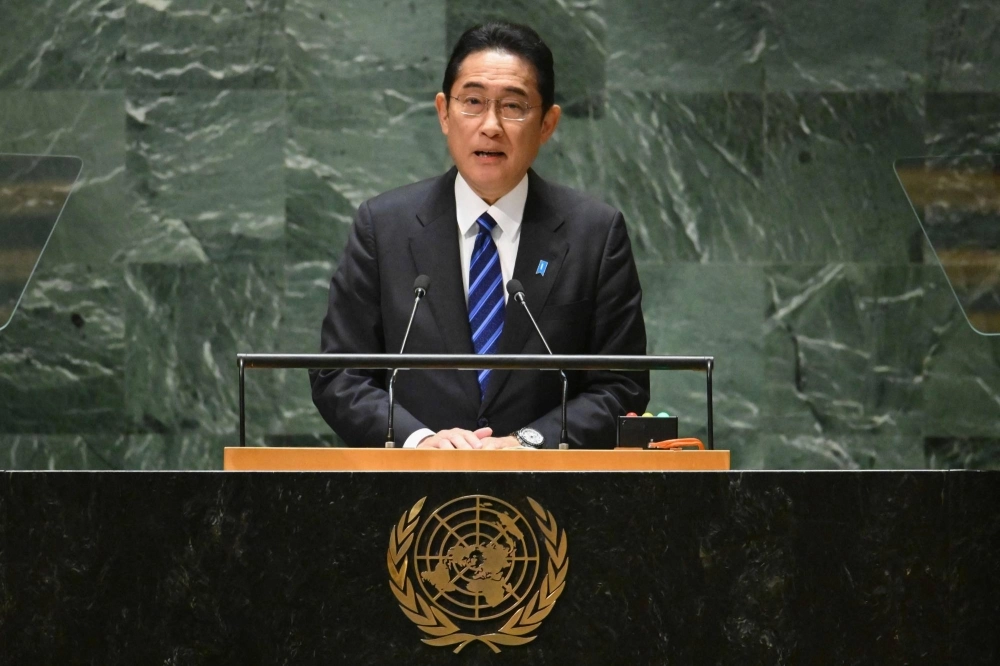Addressing the United Nations General Assembly in New York on Tuesday, Prime Minister Fumio Kishida reiterated Japan’s commitment to a rule-based international order and called for an overhaul of the nature of the U.N. Security Council.
As the world approaches the halfway point on its path toward achieving the United Nations Sustainable Development Goals — targets for which are set for 2030 — Kishida stressed the importance of prioritizing human security in the face of rampant division and polarization.
“We need a common language that resonates to all of us,” Kishida said in his roughly 20-minute speech in front of the assembly. “By shedding a new light on 'human dignity,' I believe the international community can overcome differences in regimes or values, and steadily advance 'human-centered international cooperation.'”


















With your current subscription plan you can comment on stories. However, before writing your first comment, please create a display name in the Profile section of your subscriber account page.